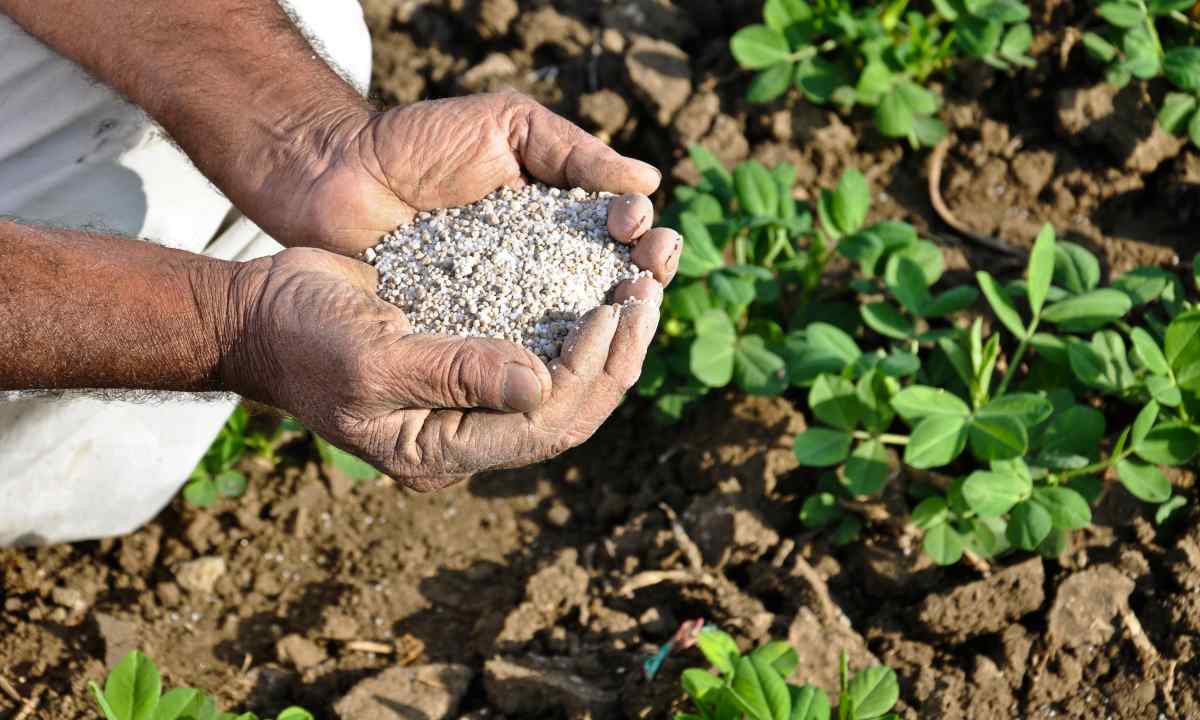Care for garden and vegetable cultures consists not only in watering, loosening and mulching, but also and in timely fertilizing of plants. Timely introduction of mineral fertilizers promotes strengthening, growth and increase in productivity, promote enrichment of the soil micro and macrocells.
Contents:
- Types of fertilizers;
- Nitrogen fertilizers and their application;
- Potash fertilizers and their application;
- Phosphoric fertilizers and their application;
- "Pro" use of fertilizers;
- "Contra" use of fertilizers.
Types of fertilizers
- Fertilizers are divided into natural (manure, compost) and mineral (urea, saltpeter, nitrogen, etc.);
- They can be simple (nitrogen, phosphorus, potassium) and complex (consisting of several elements);
- Are issued in different form – granules, powder, tablets, etc.;
Fertilizers differ with amount of active ingredient.
Nitrogen fertilizers and their application
Nitrogen – important battery for plants. Enough nitrogen in the soil promotes increase and quality of harvest. Nitrogen fertilizers use for fertilizing of vegetable cultures (potatoes, tomato, beet, carrots, cucumbers), berries (strawberry, wild strawberry), garden trees and bushes (cherry, currant, raspberry, plum, apricot). The norm of fertilizer for fertilizing on 1 sq.m. is 3-5 g.
Ammonium nitrate – coarse salt of white-pink color, content of nitrogen is 35-36%. Growth of plant is quickly acquired and strengthens. Storage conditions: waterproof container and the dry place (fertilizers quickly absorbs moisture and cakes).
The carbamide (urea) – is characterized by the increased nitrogen content (46%) and gradual assimilation by the soil. By carbamide 20-22 g on 1 sq.m. are better to do fertilizing in the spring normal.
Ammonium sulfate – crystal salt with 21% content of nitrogen. Is suitable for fertilizing in the spring and in the fall in number of 25 g on 1 sq.m, it is slowly washed away from the soil.
It is recommended to introduce nitrogen fertilizers in small amounts, but several times during the season.
Potash fertilizers and their application
Potash fertilizers help plants to acquire carbonic acid, do resistant to drought, temperature drops, cold snap, to wreckers, diseases. Are not washed away from the soil, demand deep entering into the earth and are suitable for any soils.
Potash salt – powder of gray color which contains about 40% of potassium. Introduction time – fall, in number of 15-20 g.
Sulfate potassium – contains 45-47% of potassium. It is well stored and does not contain impurity. For fertilizing 10 g on 1 sq.m. there are enough.
Chloride potassium – contains the largest amount of potassium, about 60%. Dig over the earth in the fall and add fertilizer normal of 22-25 g on sq.m.
As potash fertilizer apply ashes.
Phosphoric fertilizers and their application
Phosphorus promotes growth of plant, infructescence, increase and quality of harvest, increases resistance to frosts. Long remains in the soil therefore it is better to bring in the fall, it is deep to the earth.
Superphosphate – powder or granules with the maintenance of 20% of phosphorus. It is recommended to dissolve fertilizer in water, 35-45 g on 1 sq.m. During active fructification to mix with potash fertilizer (18-20 g on 1 sq.m.).
Double superphosphate – the double content of phosphorus is 40-45%. Dosage of 15-20 g on sq.m. Not to use for plodoyagodny cultures.
Azotnofosfornokaliyny fertilizers part in water or use dry.
pro use of fertilizers:
- Observance of the correct dosages promote increase and quality of harvest;
- Constitute small danger to human body at consumption of the vegetables and fruits fertilized by azotofosfornokaliyny fertilizers;
- Are quickly absorbed by the soil and feed plants;
- Increase fertility of the soil;
- Increase storage lives of harvest;
- Increase the resilience of plants to diseases, wreckers, frosts and temperature drops;
- Complex fertilizers contain necessary micro and macrocells in the necessary proportions;
- Strengthen growth and blossoming, strengthen roots of plants;
- Convenience of application.
contra use of fertilizers:
Application of the exceeded dosages promotes accumulation of nitrates that does harm to the person, brings to yield loss and death of plant. Nitrogen is quickly washed away from the soil therefore the excessive use promotes hit in underground waters and the rivers.
Only uncontrolled and wrong use of fertilizers can do harm.
Each gardener makes the decision on expediency of use of mineral fertilizers on the site independently, being guided by the experience, condition of plants and the soil, productivity, resistance to frosts.

